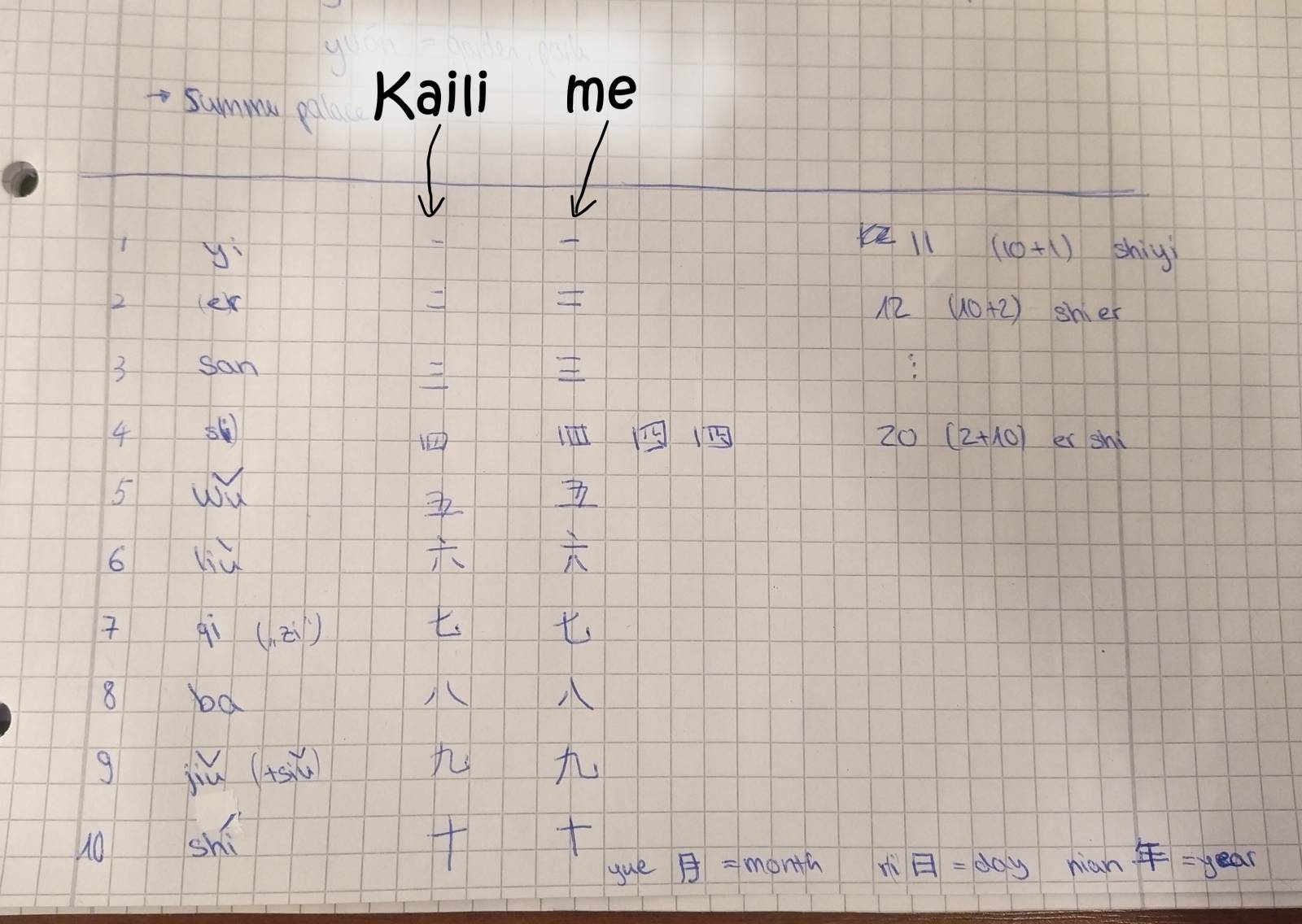Now it is getting challenging: Chinese numbers and particularly their pronunciation! Yi, er, san, si, wu, … What makes it difficult is the different sound production in the oral cavity and the pitch progression of the syllables. For example: shí (10) is pronounced differently than Qin Shi Huang (the first Chinese Emperor). To me, they both sound the same, and I don’t feel like I’m pronouncing it correctly, but Kaili was thrilled. Trying to pronounce the words taught me that it is challenging for Chinese and Asians in general to learn English – as a world language – or other European languages. I had never really thought about this as it is not the case for me because German and English are similar. I have the fullest respect for learning such a foreign and unfamiliar language.
But back to Chinese language. What is simple are the numbers above ten, which German and English should have taken as a model. Eleven translated word-for-word means “ten one” (shi yi), twelve means “ten two” (shi er) and so on. Twenty in turn means “two ten” (er shi). And it goes even further. Months and days of the week are simply counted through: January = “yi yue” (one month), February = “er yue” (two month), … Monday = “xing qi yi” (week 1), … Saturday = “ying qi liu” (week 6). Only Sunday, the last day of the week, is called “xing qi ri” (week day).
If you say the date, you first name the month (yue), then the day (ri) and then the year (nian). So, what I learned today is to name my date of birth (although we left out the numbers of the year because that would really have been too much for the beginning 😉): san yue / er shi qi ri / 2001 nian (= 3 month / 27 day / 2001 year)






Comments